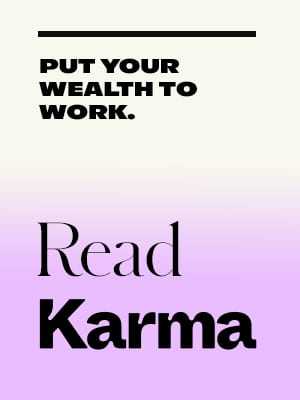- Health apps are being downloaded at a furious rate during the coronavirus pandemic as homebound workers seek assistance.
- Telehealth is expected to make up almost a quarter of the healthcare market over the next five years.
- CEO of Healthlynked, the top medical app on Apple’s App Store this week, tells Karma that the pandemic will drive long-term changes in telemedicine.
The deadly coronavirus pandemic may be a watershed moment in the app revolution disrupting the healthcare industry, as confined workers turn to their phones for connections to emotional and physical help.
Downloads of health apps are surging, and that new demand may be here to stay. Psychological support apps like TalkSpace and BetterHelp are part of the wave, fueled by users’ needs to cope with fears and uncertainties unleashed by the pandemic: getting sick, losing jobs, the health of loved ones and the fresh demands of working from home around family.
The Trump administration boosted the app movement by loosening regulations on telehealth to help curtail the effects of the Covid-19, which has killed more than 400 Americans and infected at least 31,000 others in the country. Medicare temporarily expanded coverage for providers using telehealth-based services, including mental health–counseling, and the Drug Enforcement Administration made it easier to “e-prescribe” some controlled substances, including those that treat mental health conditions.
“I think you are going to see a change” in the industry after the pandemic eases, Dr. Michael Dent, CEO of HealthLynked, told Karma. He predicted that moves toward allowing doctors to provide more services across state lines will proceed, though it may take time because states have different requirements and fees.
HealthLynked’s service is positioned to benefit from the movement because it gives patients an efficient and secure way to exchange medical information with providers no matter where they are located. The patients keep details about their medical histories, as well as medications and allergies on a secure cloud-based platform, and provide access to medical professionals as they choose. The key is that the service is patient-focused, whereas other apps are hospital- or doctor-focused, Dent said.
Dent said HealthLynked’s long-term goal is to build a global health-information network, in which everybody has a personal medical history at hand. That’s why the Naples, Florida-based company responded so quickly when reports of the coronavirus hit.
HealthLynked, which went public in 2017, built and released a Covid-19 Tracker app in February that enabled people worldwide to self-report their symptoms and keep up with the latest news on the pandemic. The app, which also includes a detailed global map tracking the virus as well as a chat function, was the No. 1 medical app in Apple’s store this week. It has been downloaded more than 2 million times, Dent said.
Kenneth Research estimated that telehealth companies will 23% of the $10 trillion healthcare market over the next five years, according to a Fox Business News report.
Of course, in the age of fake news, not all apps touted as health-related may not have the patient’s best interests in mind. Apple updated its policy to say that apps in highly-regulated fields like healthcare need to be submitted by a “legal entity that provides the services” rather than individual developers, CNBC reported.
Other big tech companies also have implemented safeguards to help prevent the spread of false information about the pandemic. Google searches for “coronavirus” returns information from the World Health Organization at the top of its results, while Facebook launched its own Coronavirus (COVID-19) Information Center to disseminate genuine updates on the crisis.






















